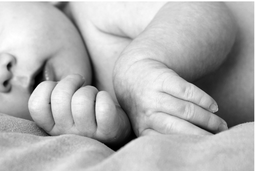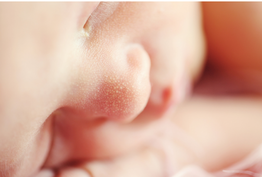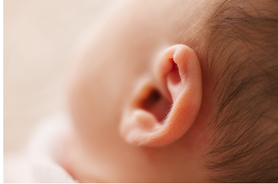DOULABABES IN GUILDFORD OFFERING HYPNOBIRTHING SESSIONS TO GUIDE YOU THROUGH PREGNANCY, BIRTH AND EARLY PARENTHOOD.
"Lucy Shutes and I are the before and after of childbirth. She is my ‘go to’ for peer to peer support. We both work in different, but complimentary fields, and I particularly value her opinions in regard to supporting new mums to breast feed their babies. She is extremely knowledgeable and up to date with current practice and guidelines and I am always grateful for her assistance and advice as I am sure are all the new mums who she supports so whole-heartedly."
Jo Strang
Norland Maternity Practitioner
What is Hypno Breastfeeding?
Hypno Breastfeeding uses self-hypnosis to enhance the experience of breastfeeding. By sedating and relaxing the conscious mind and tapping into the sub-conscious mind we can produce calming hormones to reduce anxiety and stress. Thus improving milk production and the let down process.
As the figures below confirm, exclusively breast feeding for up to 6 months in this country is only 1%. It starts off well, up to 81% but quickly drops off. Please scroll down to see the figures www.unicef.org.uk/babyfriendly/about/breastfeeding-in-the-uk/ Exclusively breastfeeding means only feeding baby's breastmilk.
Over the last 11 years of teaching hypnobirthing and seeing the difference it has made to new parents approaching the birth of their babies, often from positions of fear and self doubt, to being fully involved in the decision making and going forward into their birth as a united team full of excitement and anticipation. This has kept me believing that hypnobirthing really does make a difference to HOW you birth your babies. Then the postnatal period comes. And with it the tiredness, unrealistic expectations, obstacles and pressures of new parenting, while trying to cope and recover from birth. It can be overwhelming.
I have even heard new mothers saying this period was harder than the birth.
This is where Hypno Breastfeeding can help.
If hypnobirthing was used initially in the birth, it is a continuation of that process. Otherwise, it is learning to use relaxation and hypnosis to calm the busy active 'thinking' brain, or conscious mind, and activate the deeper more powerful sub-conscious mind.
Over the last 11 years of teaching hypnobirthing and seeing the difference it has made to new parents approaching the birth of their babies, often from positions of fear and self doubt, to being fully involved in the decision making and going forward into their birth as a united team full of excitement and anticipation. This has kept me believing that hypnobirthing really does make a difference to HOW you birth your babies. Then the postnatal period comes. And with it the tiredness, unrealistic expectations, obstacles and pressures of new parenting, while trying to cope and recover from birth. It can be overwhelming.
I have even heard new mothers saying this period was harder than the birth.
This is where Hypno Breastfeeding can help.
If hypnobirthing was used initially in the birth, it is a continuation of that process. Otherwise, it is learning to use relaxation and hypnosis to calm the busy active 'thinking' brain, or conscious mind, and activate the deeper more powerful sub-conscious mind.
One 3 hour session taught antenatally. £60 in your home, via Zoom or in the Douladen. Guildford.
This 3 hour session will focus on understanding how to get your baby and you off to a good start and how your partner can get involved. This is split into 2 X 1.5hr sessions done antenatally. We will be looking at the dynamics of lactation, the mind and body connection, creating the external womb, breathing and relaxation, tackling the fear and an awareness of the roles that the hormones play.
Including from the moment your baby is born, establishing a deep latch, frequency of feeds, the middle of the night time feeds and how to tell if things are not progressing. For more information please have a look our website www.hypnobreastfeeding.co.uk
This 3 hour session will focus on understanding how to get your baby and you off to a good start and how your partner can get involved. This is split into 2 X 1.5hr sessions done antenatally. We will be looking at the dynamics of lactation, the mind and body connection, creating the external womb, breathing and relaxation, tackling the fear and an awareness of the roles that the hormones play.
Including from the moment your baby is born, establishing a deep latch, frequency of feeds, the middle of the night time feeds and how to tell if things are not progressing. For more information please have a look our website www.hypnobreastfeeding.co.uk
Breastfeeding rates in the UK
In the UK we have some of the lowest breastfeeding rates in the world, with eight out of ten women stopping breastfeeding before they want to. (source: www.unicef.org.uk/babyfriendly/about/breastfeeding-in-the-uk/ )
The last UK-wide Infant Feeding Survey was conducted in 2010, and we are calling on UK governments to reinstate this. Key findings were:
The last UK-wide Infant Feeding Survey was conducted in 2010, and we are calling on UK governments to reinstate this. Key findings were:
- Breastfeeding initiation: 81% (up from 76% in 2005).
- Exclusive breastfeeding at six weeks was 24% in England compared to 17% in Wales and 13% in Northern Ireland – see below for more recent survey results from Scotland.
- Exclusive breastfeeding at three months: 17% (up from 13% in 2005).
- Exclusive breastfeeding at four months: 12% (up from 7% in 2005).
- Exclusive breastfeeding at six months (as recommended by the World Health Organization) remained at around 1%.
- The rate of any breastfeeding at six weeks was 55% (rising from 48% in 2005), while at six months it was 34% (rising from 25% in 2005). These improvements coincided with a marked increase in engagement with the Baby Friendly Initiative.
HypnoBreastfeeding is latching on!
DOULAS DO IT WITH LOVE


